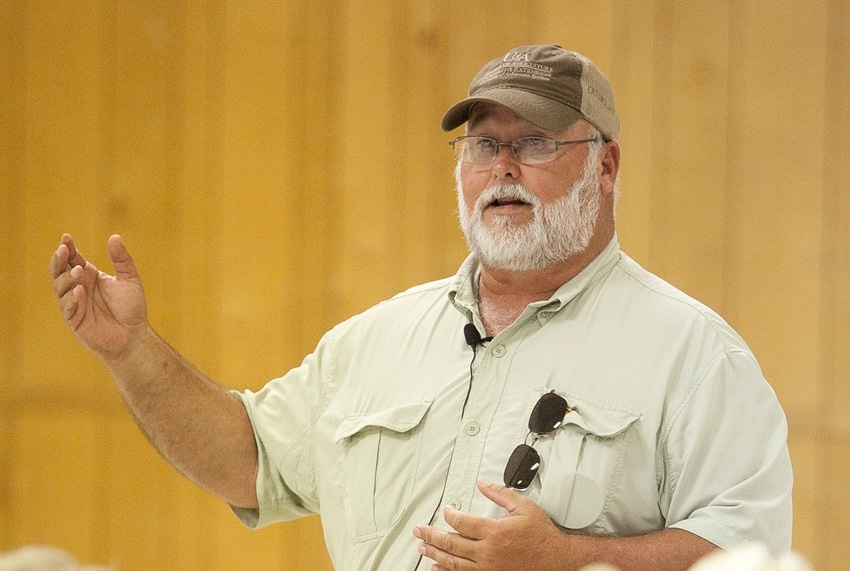March 24, 2016

Here are three basic recommendations from me and, I suspect, from the wider Extension community in our region that can help you get through 2016 in the best shape possible.
(1) Rely on a good private consultant
If you don’t work with a consultant, get one. If you have a good consultant, don’t let him or her go. I’m being told that some growers either have dropped their consultants or are thinking about it. They’re being encouraged to do so by various sources.
If ever we had a scenario where farmers need consultants, this is it. In a fat season with high commodity prices, consultants add to profit. In a shaky year, a good consultant will probably keep you from doing anything too stupid (not to put too fine a point on it).
A consultant’s ultimate goal is to help the client make more money. Or, perhaps in a year like this, break even. It’s a different reality in 2016 than we’ve had for a while.
A good consultant saves the grower money by monitoring the crop for weeds, insects and diseases and treating when needed — not when the neighbor sprays or just because you’re already making a trip across the field. Consultants will more than justify what you pay them by finely tuning your application timing, product selection and such. In other words, whatever you spend on their fees, they’ll make you more than you’re paying them.
Let’s remember, too, that consultants take a far more holistic approach now than in the old King Cotton days when they simply scouted for insects. They can help clients pick varieties, time irrigation and fertility, select the right herbicide or insecticide that fits the situation. They know what’s working and what isn’t.
Beyond all that, consultants often catch small things before they develop into huge, money-sucking problems.
Private consultants have nothing to sell, so they don’t care what products you use, other than the fact that it fits the situation. Remember, they want to improve the grower’s bottom line. Their only bias is for the client.
I know a lot of consultants who worry and fret over a grower’s crop just as much as the grower does. They care about the farmer and want him to be successful. I won’t tell you I always agree with every recommendation that a consultant might make. But I don’t doubt his ultimate goal, which is keeping the farmer on track and in business.
I know a lot of growers are being advised to drop their consultant and are getting offers for free scouting and recommendations for their farm.
Bottom line: free scouting means the person making the recommendations doesn’t work for the grower. They work for someone else.
All that said, I’m sure in favor of capitalism. Our economy is driven by a company’s right to sell and make money. It’s the farmer’s responsibility as a businessman to sort through the offers and hype and make choices that benefit him, his family and his employees. Sometimes they just need a little help making that decision.
Also, I know plenty of guys in dealer organizations that scout and provide recommendations who provide responsible services to the grower and have a deep understanding of how and when to use crop protection materials. They really do a great job.
Ultimately, farmers must remember that they are consumers and the choices they make are their own responsibility.
(2) Be diligent
As you make decisions in 2016, do your homework when someone recommends a new product or program. Look for hard data on every material you use, whether it’s something to protect the crop or provide plant nutrition.
The Internet, of course, has revolutionized the way we can research the finer points of crop production. When online, make sure your info comes from reputable sources, with conclusions and guidance based on thorough science, not just on an unnamed plot here or there.
At the field level, ask yourself questions over and over. Is that herbicide the one that will kill those “dang” pigweeds? Will that insecticide control the bugs that are turning up? Does that “stuff” really increase yield on my crop? What do the university folks say about a given product?
(3) Keep your budget handy
Carry a paper copy in your pickup or regularly upload the electronic file to your tablet. When somebody recommends adding another $2 an acre to a spray, plug that into the spreadsheet and see what effect it has across the number of acres being lined up for a treatment.
That in itself can be a reality check.
Here’s one more reality check: if somebody says that an add-on product “will only cost $2 an acre,” pull out your smartphone and check the commodity market at that given point. It’s not like those numbers will go up much this season, so ask yourself if you really can afford another $2 an acre.
At the risk of showing my age, I remember the TV show Kung Fu. The hero’s wise old mentor used to say: “Choose wisely, Grasshopper.”
My words exactly.
Gus Lorenz is an Extension Entomologist with the University of Arkansas Division of Agriculture. Email him at [email protected].
You May Also Like




